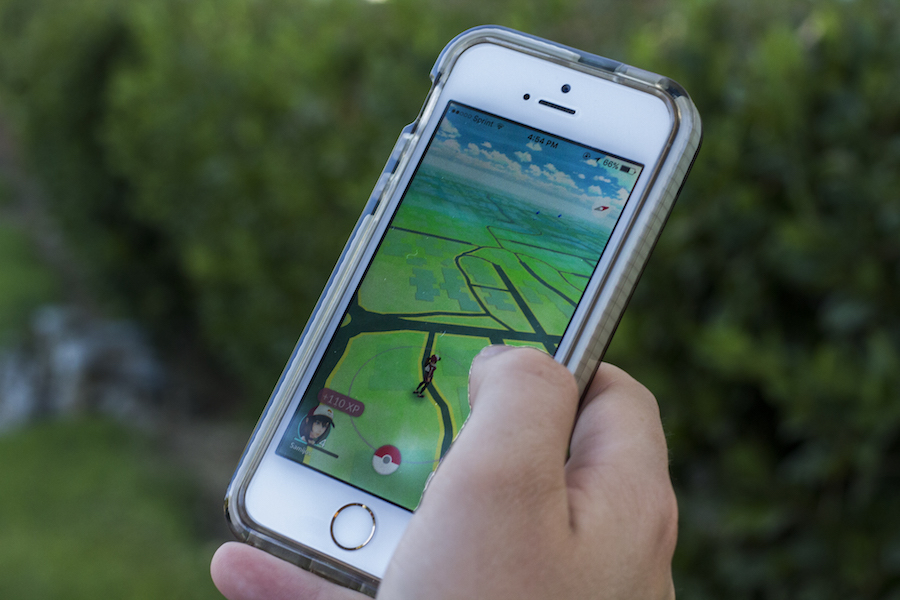
UC Davis professor Cindy Shen disproves gender bias myth in videogames
With a research-backed coup de grace, Cuihua “Cindy” Shen, associate professor in the UC Davis Department of Communication, delivered a powerful “GAME OVER” to the myth that men perform better than women in video games.
Shen conducted a study that utilized data from over 9,000 players of the American online multiplayer game EverQuest II and 2,000 players of the Chinese online multiplayer game Chevaliers’ Romance III to compare the performance of men and women.
“[Using two games] gave us the opportunity to test the same question in two different cultures,” Shen said.
One of the catalysts to Shen’s research was an incident called Gamergate that occurred in 2014, when a female game designer was attacked and harassed online by the gamer community. This controversy lifted the seal on the deep-rooted misogyny and sexism within the realm of videogames and opened the floor up for researchers like Shen to lay out the facts.
“In terms of numbers, women are a very important demographic [in the gamer community], almost making half of all gamers,” Shen said. “Because of this Gamergate incident, my colleagues and I started to question: is the prevailing stereotype that women make worse gamers than men really true?”
Taking the study out of the lab and into a real world context, Shen and her colleagues used controlled variables such as skill level, character choice and playing time to prove that, in both the U.S. and China, there is no performance gap between male and female videogame players
The origins that laid foundation for these biases to form manifested themselves within the early game industry, said Colin Milburn, director of ModLab and professor at UC Davis in the English, Science and Technology and Cinema and Digital Media Departments.
“The video game industry, from its very origins, was focused on a young male consumer as its idealized image,” Milburn said. “The U.S. in particular, [had] the young, white male as the predominant consumer of video games.”
Despite evidence of a radically changing consumer base, that image of the white, male consumer has persisted, and the mainstream industry continues to perpetuate and cater to the fiction of an idealized male consumer, Milburn said.
Amanda Phillips, English professor at Georgetown University and former IMMERSe postdoctoral fellow at UC Davis’ ModLab, is a gamer herself whose experience has been limited due to the expectation of harassment from hostile male gamers.
“I have actually avoided a lot of multiplayer games for that reason,” Phillips said. “I make sure [when I do play multiplayer games] that I’m only playing with people I know.”
The animosity in gamer culture comes out of the fact the world is already racist, sexist and homophobic by nature — it uncovers the fact that it’s not a problem with gamer culture, but with culture itself, Phillips said.
Shen’s field of research begins to chip away at the heavily biased backbone of the gamer world.
“[Shen’s] research is helpful because one of the first steps to getting rid of these biases is to accept the fact that women play games,” Phillips said. “People of color play games, queer people play games — they’re all part of the online gamer community.”
Looking beyond the seemingly ever-present biases and antagonism in the video game community, there are feats — such as Shen’s — that are changing the gamer world.
“Many independent videogame developers are helping to diversify the field and change the scope of what games are and what they can do,” Milburn said. “We see games changing, the field of games as well as the players changing.”
Milburn hopes that the industry aims for more conscious efforts towards diversity in hiring, as well as changing the gaming industry’s marketing practices to be more responsive to its real existing player base.
Shen sees progress stemming from within the videogame designer community as well.
“It would be really nice if we could get more female game designers,” Shen said. “A lot of these problems manifest themselves when it’s a male gamer designing a game for men to play. If we can get more females in a designer position, I think games will start changing.”
In many cases, people who play games as young people become inspired to pursue careers in science and technology, and Shen’s research helps to produce a better, more equitable future, according to Milburn.
“Games have been becoming the dominant entertainment medium of this century. Games are shaping our culture. They tell stories about us as a culture,” Milburn said. “Addressing negative and inaccurate stereotypes is really important when it comes from such an influential cultural medium.”
For anyone interested in learning more about videogames and culture or getting involved in videogame related research, check out UC Davis’ Department of Communication and UC Davis’ ModLab.
Written by: Ariel Robbins – science@theaggie.org



